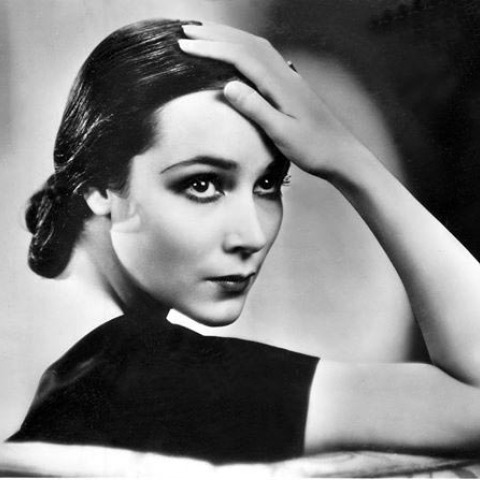Barbican bring these glorious musicals, comedies and dramas to UK audiences, some newly subtitled and in beautiful new prints and digital restorations.
Have a look at the programme below and visit their website for full details: http://www.barbican.org.uk/film/serie...
Sat 2 May 4pm, Cinema 2
La mujer del puerto (12A*)
A box office success in its day, and sometimes cited as the film that kicked off the Golden Age of Mexican cinema, this outrageous melodrama fuses overwrought emotions with highly-stylized Expressionist images recalling the work of FW Murnau and Soviet-style montage.
Following the death of her father and the shattering revelation that her boyfriend has been unfaithful, Rosario (Andrea Palma) resigns herself to a bleak fate of selling love to sailors in the port of Veracruz.
When she is rescued from the clutches of a drunken sailor by kind Alberto, the two spend a passionate night together… but their love is threatened by a dark secret from the past.
Mexico 1934 Dir Arcady Boytler 76min
Sat 2 May 6pm, Cinema 2
Enamorada (12A*)
This witty and deliriously romantic reworking of TheTaming of the Shrew, set in picturesque Cholula during the Mexican revolution, is one of the most influential Mexican films of all time.
Having captured Cholula, General Reyes (Pedro Armendáriz) sets about seizing the monies of its land-owning colonial bourgeoisie, but is tripped up by the smouldering beauty of spitfire-senorita Beatriz (María Félix), daughter of one of the town’s richest men. It’s love at first sight for our macho hero, but, with a mischievous glint in her eye, fiery Beatriz rebuffs his advances: does she really not care for his attentions – or is she just playing hard-to-get?
One of Mexico’s biggest hit films of the decade, Enamorada swept the Ariels (the Mexican Oscars) with awards for Best Picture, Director, Actress, Screenplay and Cinematography, among others.
Mexico 1947 Dir Emilio Fernández 99min
Sun 3 May 4pm, Cinema 2
María Candelaria (12A*)
The first Mexican film screened at Cannes, and the first Latin American film awarded the Gran Prix, María Candelaria was the film that brought the Golden Age of Mexican cinema to the world stage.
Dolores del Río exchanges furs and diamonds for a shawl and bare feet for the titular role in this full-blown melodrama of love and intolerance, set among the indigenous people of Xochimilco, in 1909.
Dolores plays lowly flower-seller, María. As the daughter of a prostitute, she is shunned by her fellow villagers, and her romance with hard-working peasant Lorenzo is cruelly obstructed by brutish rival suitor, Mestizo shopkeeper Don Damián. Her decision, out of necessity, to sit for a painter, causes a scandal with tragic consequences.
Mexico 1943 Dir Emilio Fernández DP Gabriel Figueroa 97min
Sun 3 May 6pm, Cinema 2
Distinto amanecer (12A*)
Set over the course of one single, sweaty night this stylish film noir plays out among the shabby cinemas, nightclubs and dingy backstreets of Mexico City, captured by famed cinematographer Gabriel Figueroa.
Octavio is a union activist searching for documents that prove governmental corruption. Pursued by the law, he encounters an old university classmate, Julieta (a sultry, chain-smoking Andrea Palma), who hides him in the squalid flat she shares with her husband.
As he considers rekindling his romance with Julieta, now a fichera (female escort) at the cabaret Club Tabu, the clock is ticking, and the government men draw ever closer. Julieta is forced to question where her true loyalties lie.
Mexico 1943 Dir Julio Bracho 108min
Mon 4 May 6.30pm, Cinema 2
Salón México (12A*)
In the Salón México cabaret, women are sold as dance partners, and more. Mercedes (Marga López) is one of them, living in a shanty atop a run-down apartment block, and working nights to pay for her younger sister’s schooling.
Torn between two rival suitors, the kind-hearted, widowed policeman, Lupe and macho thug Paco, Mercedes gets along by clawing pesos from her clients. But when she tries to steal from her pimp, an upcoming ‘danzón’ contest offers the only hope of salvation.
Director Emilio Fernández and cinematographer Gabriel Figueroa’s first ‘cabaretera’ (noir-tinged, cabaret-set melodrama) is a stylish look at Mexico’s urban underworld, complete with a night-time chase across the roof-tops, and a climactic face-off in the moonlight.
Mexico 1948 Dir Emilio Fernández 95min
Mon 4 May 8.20pm, Cinema 2
La diosa arrodillada (12A*)
In the 1940s, a string of roles defined María Félix on-screen persona as a femme fatale who leads men on a rollercoaster ride of torment and ecstasy, often leading to their deaths and/or moral collapse.
Here she stars as Raquel, a part-time prostitute, nude model, and mistress to a wealthy industrial chemist. Antonio splits with Raquel to care for his ailing wife, but her hold on him is such that he immediately rushes out to buy a life-sized replica of her, in faux-Greek mythological style, as a kneeling goddess to decorate the garden at home. When misfortune strikes his wife, Antonio is racked with guilt and both inflamed and disgusted by his obsession with Raquel.
Considered one of the very best examples of Mexican film noir, the film has a pleasingly twisty plot and, with Félix and dashing matinee idol Arturo de Córdova, an utterly gorgeous, wholly depraved leading couple.
Mexico 1947 Dir Roberto Gavaldón 107min






























